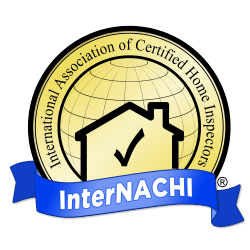The Domicile Difference
All home inspectors are required to inspect the major systems of the home. Domicile Consulting goes far beyond the minimum standard of the Illinois Home Inspector licensing statute. We go beyond minimum standards, providing a holistic approach with expert construction knowledge, reference to industry construction standards, and cutting-edge technology.
We will tell you:
- how defects affect the property as a whole in terms of structural integrity, health & safety and environmental friendliness
- improvements for optimal energy performance
- the level of personal comfort you can expect in cold or hot months
- how defects in HVAC, ventilation and building shell can negatively affect your family’s health
- and much more
Worried about submitting an offer on a home before knowing any of the details on its condition? We offer $250 preliminary home inspections, that can save you the cost of a full home inspection.
Our Home Inspection Process
At Domicile Consulting, we basically inspect everything from the top down: roof, exterior, attic, foundation, HVAC, plumbing, electrical and appliances. Unlike many other home inspectors, we also inspect the roof, exterior and common areas for our condominium clients so that they are aware of any potential repair costs that may impact them in the near future.
What we’re looking for is a wide range of problems that could affect the structural integrity of the property and/or your health, safety, and comfort, including:
- Moisture intrusion
- Indoor air quality
- Mold
- Combustion safety
- Defects in the building shell
- Plumbing issues
- Faulty electrical installations, retrofits, and wiring
- and more…
State-of-the-Art Inspection Technology
We don’t just show up with a clipboard, flashlight, and pencil; Domicile inspectors employ cutting-edge technology and tools in our home inspections, including:
- Thermal/infrared imaging which detects extremely small temperature differentials between materials indicating hidden moisture, missing insulation, thermal bypasses/large energy leaks, etc.
- Capacitance and conductance moisture meters that detect hidden moisture and water intrusion that the seller may not have disclosed
- Hygrometers that measure the moisture content and indoor humidity
- Fiber optic borescope cameras to see inside small openings in walls and attics and hard-to-reach places and find hidden cavities
- Combustible gas leak detectors
- Carbon monoxide detectors that measure down to single parts per million
- Radon detection equipment.
- Anemometers, which measure air flow
Contact Us Today To:
Write or call us for a quote and to discuss your building today at (312) 488-1461

